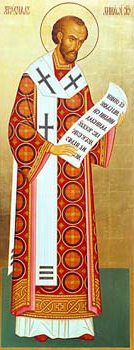|
박희춘 목사
(Homepage) |
2020-11-01 08:27:14, 조회 : 2,636, 추천 : 583 |
- Download #1 : toward_narrative_theory.pdf (3.54 MB), Download : 90

TOWARD A NARRATIVE THEORY OF MORAL DISCOURSE:
THE RHETORIC OF HOMILETICS AND FAITH DEVELOPMENT
Steven A. Harsh
The Ohio State University
TABLE OF CONTENTS
DEDICATION.............................................ii
ACKNOWLEDGMENTS .................................... iii
V I T A ................................................... iv
CHAPTER PAGE
I. RESEARCH QUESTION AND RATIONALE ............. 1
Introduction/Self-Reflection ............. 1
The Research Question ..................... 2
Major I s s u e s ................................ 6
The Proper Role of Rhetorical Theory;
Dogmatism, Realism, or Relativism? .... 7
Rhetoric and Theories of Moral Development 10
Rhetoric and the Human
Spiritual/Imaginative Dimension .......... 12
Importance, Relevance, and Justification
of the S t u d y ............................... 25
II. THE CONTEMPORARY LITERATURE ON RHETORICAL
EPISTEMOLOGY AND ITS RELATIONSHIP TO MYTH,
NARRATIVE, AND F A I T H .......................... 37
Truth Claims of Religious and Secular Myths 37
Rhetorical Theory and M y t h ................. 40
Dogmatic, Realist, and Relativistic
Rhetorical Theories . .................... 49
Moral Development Theories ............... 65
The Spiritual Dimension ................... 74
III. PHILOSOPHICAL ANALYSIS ..................... 82
Ehninger's Theory of Correction .......... 83
Kelly's Creativity Cycle ................. 84
Meta-Theoretical Critique ................. 88
The Epistemic I s s u e .........................91
Fisher's Narrative Paradigm ............... 93
D o g matism................................... 98
R e l a t i v i s m ................................ 104
R e a l i s m .................................... 108
Moral Development..........................Ill
The Spiritual/Imaginative Dimension . . . 114
IV. CONCLUSIONS: RELATIONAL RHETORIC AND
HOMILETICAL THEORY ....................... 120
Characteristics of Secular and
Religious Myths ......................... 121
How Criteria are Applied in Discourse . . 124
Implications of Different Criteria . . . 128
A Consistent Standard of Judgment .... 130
Relationality and Rhetorical Epistemology 135
Myths, Values, and Identity ............ 138
Intrapersonal Rhetorical Issues of
Epistemology ........................... 140
Implications of Potential and Realized
Relationality ........................... 141
Homiletical Praxis and Narrative .... 146
V. IMPLICATIONS FOR RHETORIC, THEOLOGY, AND
HOMILETICS AND LIMITATIONS OF THE STUDY. . . 164
Limitations of the S t u d y ................. 164
Implications for Rhetorical Theory . . . 167
A Balanced and Holistic Rhetorical Theory 168
A Rhetoric of Social Amelioration .... 174
Implications for Rhetorical Criticism . . 178
Implications for Theology ............... 186
Implications for Homiletics ............ 192
C o n c l u s i o n ................................ 198
LIST OF REFERENCES................................ 200
|
|
|

